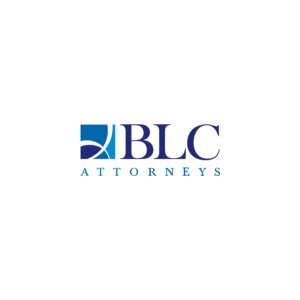Best Class Action Lawyers in Port Elizabeth
Share your needs with us, get contacted by law firms.
Free. Takes 2 min.
List of the best lawyers in Port Elizabeth, South Africa
About Class Action Law in Port Elizabeth, South Africa
Class action, also known as a representative action, is a type of lawsuit where a large group of people collectively brings a claim to court, or where a certain class of defendants is sued. In Port Elizabeth, South Africa, this form of legal action operates under the country's broader constitutional and legal framework and is often used in cases that involve consumer protection, environmental issues, and human rights violations. It enables a large group to seek justice and compensation for a common harm caused by a single entity.
Why You May Need a Lawyer
Class action cases can be complex and may require the expertise of a legal professional. An individual may need a lawyer when they have been negatively affected along with a group of other individuals by the actions of an entity - this could be faulty products, misleading advertising, or work-place exploitation, among other issues. Lawyers are also necessary to help navigate the often intricate legal procedures and requirements that class action lawsuits may entail.
Local Laws Overview
South African legislation pertaining to class actions is encapsulated largely in Section 38(c) of the Constitution and rules 17A of the Uniform Rules of Court. Additionally, various statutes such as the Consumer Protection Act and the Companies Act contain provisions relevant to class actions. Such cases often involve multiple jurisdictions and the application of various areas of law, making them highly complex. The main idea is that an identifiable group of people who have suffered the same wrong at the hands of a single party can unite their claims in a single legal action.
Frequently Asked Questions
1. What are the benefits of a class action lawsuit?
Class action lawsuits provide access to the courts for people whose claims may be too small to pursue individually. They also ensure uniformity of judgments and operational efficiency, and can help deter wrongdoers by proving collective redress for mass wrongs.
2. Can I opt out of a class action?
In most class action cases, potential class members have the right to opt out of the proceedings and pursue individual legal actions if they so wish.
3. Who pays the legal fees?
Typically, class action attorneys work on a contingency fee basis, meaning they only take a percentage of any recovery if the case is successful.
4. What if the lawsuit is unsuccessful?
If a class action lawsuit is unsuccessful, usually the plaintiff or plaintiffs will not owe any legal fees to their attorney. The risk is borne mainly by the class action law firm.
5. How long does a class action take?
Class action lawsuits are generally a lengthy process that can extend over several years due to the complexity of the issues involved and larger number of parties.
Additional Resources
The Legal Practice Council and the Law Society of South Africa are key resources for legal practitioners and the public alike on class actions in South Africa. For general legal resources, one can also refer to the Legal Aid South Africa and the Department of Justice and Constitutional Development. Consumer protection resources that may be relevant include the National Consumer Tribunal and the National Consumer Commission.
Next Steps
If you believe you may be part of a class action or wish to initiate one, it is vital to consult with a practising attorney who is experienced in class action law. They can guide through the process, advise you on your legal options, and help you make informed decisions. Legal representation will ensure you have the best chance of a successful outcome in a class action lawsuit.
Lawzana helps you find the best lawyers and law firms in Port Elizabeth through a curated and pre-screened list of qualified legal professionals. Our platform offers rankings and detailed profiles of attorneys and law firms, allowing you to compare based on practice areas, including Class Action, experience, and client feedback.
Each profile includes a description of the firm's areas of practice, client reviews, team members and partners, year of establishment, spoken languages, office locations, contact information, social media presence, and any published articles or resources. Most firms on our platform speak English and are experienced in both local and international legal matters.
Get a quote from top-rated law firms in Port Elizabeth, South Africa — quickly, securely, and without unnecessary hassle.
Disclaimer:
The information provided on this page is for general informational purposes only and does not constitute legal advice. While we strive to ensure the accuracy and relevance of the content, legal information may change over time, and interpretations of the law can vary. You should always consult with a qualified legal professional for advice specific to your situation.
We disclaim all liability for actions taken or not taken based on the content of this page. If you believe any information is incorrect or outdated, please contact us, and we will review and update it where appropriate.








